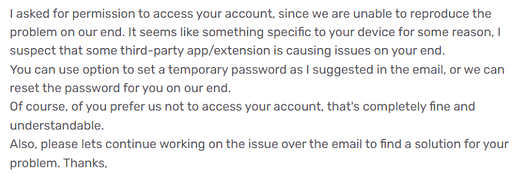Another retired professional software engineer here … 
I have made far more progress using LingQ than with any other app, I can now understand native French podcasts, for example on the lack of diversity in French cheese moulds, and I am close to understanding French films. And I am using it for German, albeit at a much more basic level. I am impressed by how well the idea works, so I am loathe to be critical.
But honestly the standard is poor.
Critical bug: For a week recently the app crashed as soon as I opened it, making it unusable. Fortunately I discovered a solution which was to reinstall it. I’ve never had that with any other app. Others reported it, and I suspect this is due to lack of regression testing. Some users might not realise that they have to reinstall the app, so for them the app becomes unusable until an update with a fix appears. This level of bug should never get out into the wild. I’ve never worked on. a software application that does this, and I worked in the industry for 30 years.
Serious bug: Today after one hour revision of a YouTube video, my German known word count decreased by 10 words, and my coin count increased by 5. The statistics don’t work. In short, unusable.
Serious bug: When I watch YouTube videos, they regularly shoot back to the beginning and I have to spend a minute relocating my current position. For an 80 minute film that is not pleasant. I often end up swearing out loud out of frustration and annoyance. Surely this isn’t hard to solve?
Serious bug: When watching a YouTube film, more often than not the current line scrolls off the screen and hence I cannot read the transcript while listening. This is so easy to solve. Just place the current line in the middle of the screen, not at the top.
Quibbles: I don’t like the content in LingQ, some is poor quality, and I suspect some YouTubers see it as a way to promote their products. Some has only artificially generated audio. Some is atrocious. But this isn’t serious, I just import good content.
So for me LingQ is a reader tool only, which I use with YouTube imports. £100 a year for a reader is in a sense a lot of money, especially when compared to Babbel et al. However, I pay the money because it is far superior to Babbel et al. Admittedly it took me six months to figure out how best to use it.
But, if another reader appears on the market which allows me to turn YouTube videos into lessons, I’ll drop LingQ.
It makes me wonder what the problem is. Perhaps they try to support too many languages, and spend time searching for content to put into LingQ. Perhaps they don’t do any regression testing. Perhaps they do inadequate testing. Perhaps the income is too small to employ sufficient engineers. Perhaps the code base has become very hard to maintain, a common problem with older software. Or perhaps they just don’t have anyone responsible for UI design. I’ve worked on countless projects, so I’ve seen excellent practices, and dreadful practices. But I don’t know what the problem here is.

